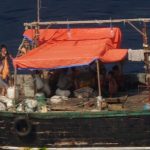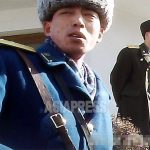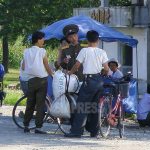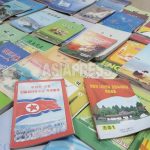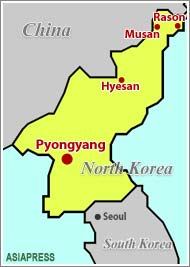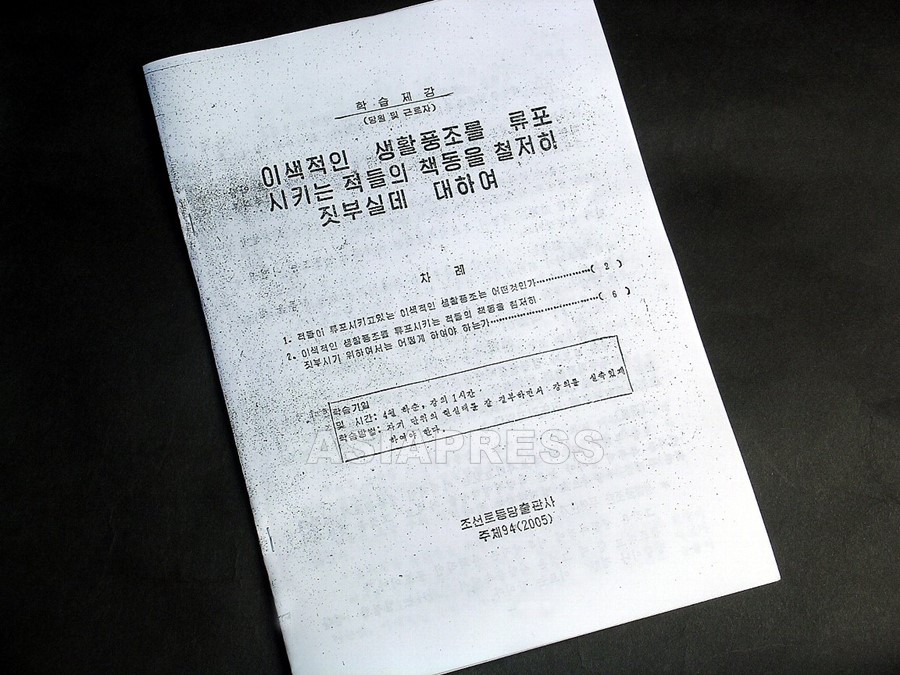
The continued leaking of internal documents from North Korea’s Workers’ Party and government agencies has become a major issue within the North Korean government, with the authorities ordering the thorough retrieval of distributed documents in addition to a prohibition on printing documents. ASIAPRESS understands that North Korean leader Kim Jong-un expressed great anger over South Korean and international media outlets frequently publishing internal documents. (ISHIMARU Jiro / Kang Ji-won)
◆ Kim Jong-un may have ordered a stop to the leaks
For the past 20 or so years, several media agencies in Japan and South Korea have acquired and released documents published in North Korea. These news outlets include the Tokyo Shimbun, Mainichi Shimbun, NHK, and ASIAPRESS in Japan, along with several South Korean outlets that include public broadcaster KBS and Daily NK, which specializes in obtaining information from North Korea.
Internal documents from North Korea are diverse and can range from “lecture materials,” or documents handed out during lectures for ordinary people, to confidential documents created by party and government agencies.
North Korean authorities have long put significant efforts into preventing the leakage of documents and tracking down leakers. They have done this by placing serial numbers on documents or retrieving documents by a set date after they have been distributed. Despite these efforts, the authorities have failed to fully prevent the leakage of internal documents.
North Korean leader Kim Jong-un, unhappy about this state of affairs, reportedly handed down an order recently instructing officials to thoroughly crackdown on the leakage of documents. While this information has not yet been confirmed, an ASIAPRESS partner in the country has reported that Kim Yo-jong is overseeing this crackdown in cities that border China, which is where most leaks of documents occur.
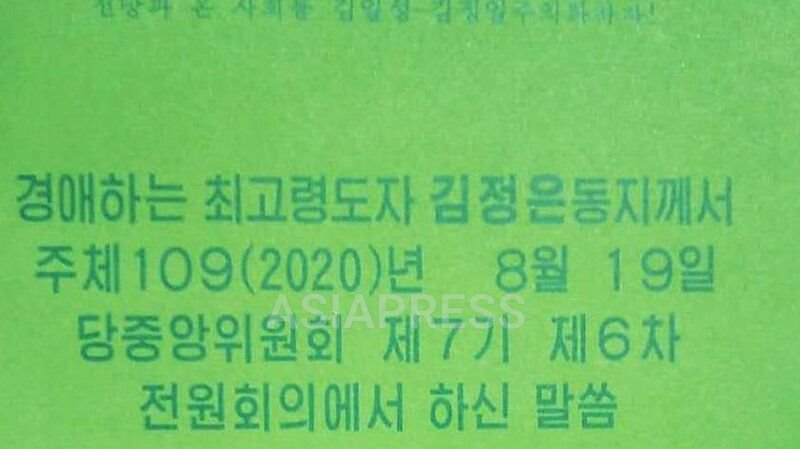
◆ With printing prohibited, documents are being viewed on digital devices
In mid-April, an ASIAPRESS reporting partner in the northern part of North Korea provided information about how the authorities are managing documents.
“The provincial party committee’s propaganda and agitation department has ordered that no documents handed down from the government be printed for any reason. The department has also ordered that tablet PCs be used during lectures.
One cadre explained that the reason for this was that the country faces difficulties in producing paper, so rather than print and distribute documents only to later recollect and then recycle them, it is better to view the documents on digital devices. Another cadre said that ‘it’s a major problem that documents frequently get leaked to other countries.’ In fact, party and government agencies along with enterprises have begun rigorously managing copies of documents. North Korea has long restricted the use of copy machines, of course, but the authorities have significantly intensified their monitoring (of document copies).”
Starting in April, Socialist Women's Union study sessions, attended mainly by housewives, have begun using tablet PCs to view documents, according to the reporting partner. During lectures for ordinary people held by cadres from the Ministry of Social Security, Ministry of State Security, and Workers’ Party, lecturers are now using digital devices to view documents, rather than using paper documents.
The reporting partner said that he believed that officials use something like PowerPoint during the lectures because it is impossible to distribute tablets to ordinary people.
Another reporting partner told ASIAPRESS that there has recently been changes in how officials manage their documents:
“For quite some time now, documents have been sent by email from the central government which are then printed and distributed to target audiences. The authorities have already greatly reduced the distribution of (paper) documents from last year out of fears that they will be leaked. The authorities have long operated under the general principle of recollecting distributed documents, but when pictures of documents were published in other countries, the authorities decided from last year for nothing to be printed.”
